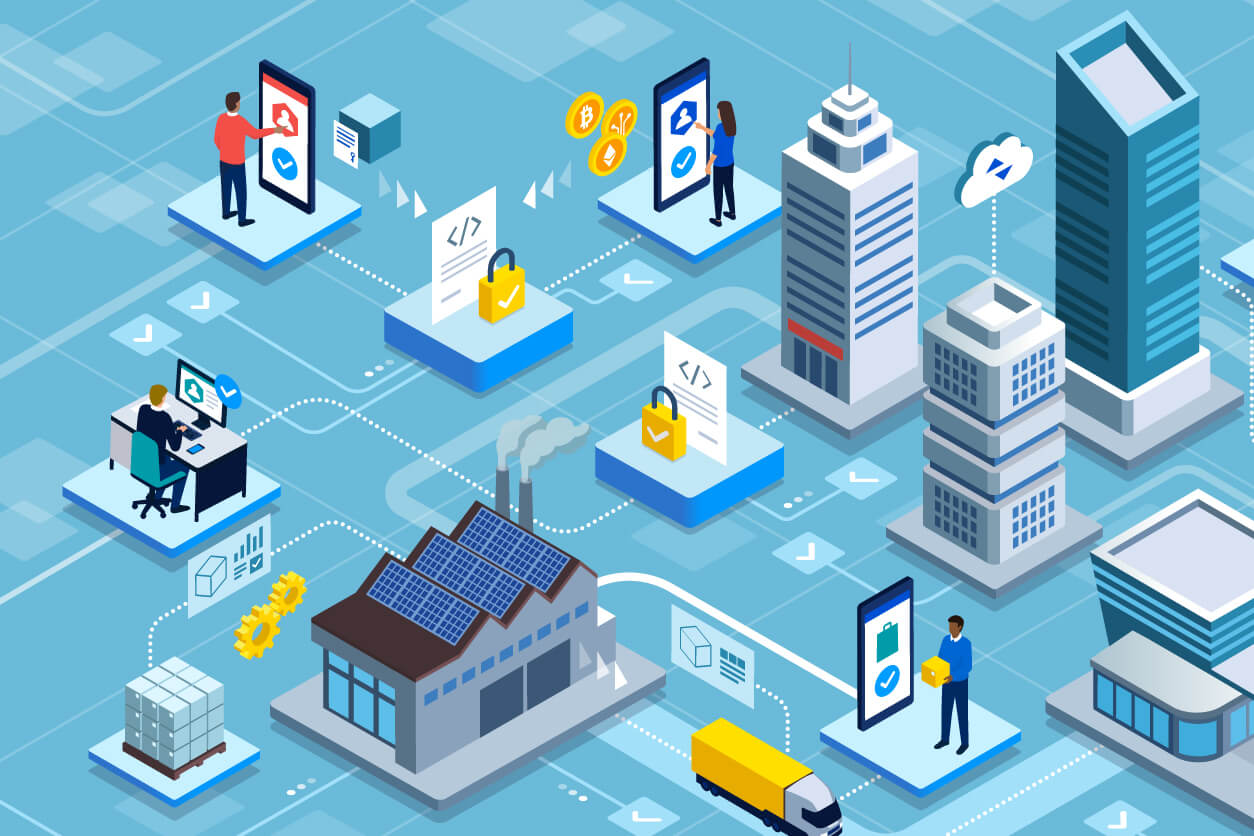Since Henry Ford’s introduction of mass production during the industrial revolution, nothing has impacted the manufacturing industry the same way—up until today. Now, we are seeing the accelerated development of processes, cloud computing, big data analytics, and the Internet of Things being utilized within the manufacturing industry.
A survey data according to Deloitte shows that organizations that include digital transformation into their business operations, referred to as "Industry 4.0 strategies," are significantly more successful. About 70% of those with comprehensive Industry 4.0 strategies “have made a great deal of progress against their goals,” as opposed to only 10% for those who did not have strategies to leverage new technologies.
What is the manufacturing industry?
The manufacturing industry transforms raw materials or components into finished products that can be sold in the market. They can be finished products that are readily sold in stores, or parts that are used in the production process.
Prior to the industrial revolution, a lot of these products were made by hand. Since then, machines were invented to mass produce these products, enabling industries to get the processes done faster with more precision. Since they require less labor, the process drove down prices and made the products cheaper.
Numerous industries rely heavily on manufacturing to operate, such as:
- Food and beverage
- Textiles
- Wood and paper
- Metal and machinery
- Electronics
- Furniture
- Transportation & more
The manufacturing industry is vital to the economy because it employs a big section of the labor force and generates materials needed by major sectors in the world.
Digital strategy for the manufacturing industry
Modern processes require a digital strategy that will enable the manufacturers to continuously provide consistent and reliable products.
Today, modern processes are not just limited to technological advancements. It also includes the development of digitization and digitalization. For example, we see the industry incorporate digital signatures and digital certificates when filling out forms and processes to ease approval processes and secure digital data.
How can digitalization help the manufacturing industry
So how does digitalization help the manufacturing industry? Aside from ease of doing business, digitalization helps speed up processes and streamline operations, overall increasing efficiency and productivity. What used to be a manual process can now be replaced with modern solutions such as as-a-service platforms that can help organizations optimize their resources.
Aside from the technical aspect, digitalization provides greater resilience as employees start to embrace a digital culture—something that a lot of employees prefer over traditional methods. Companies can weather normal business ups and downs better with the aid of digital technologies. This synergy is a holistic approach towards a successful digital transformation. What most people do not realize is machines are not just innovated to replace human work, rather to make things and processes better for the future of production and manufacturing.
Manufacturing industries also use digitalization to gather, store, and analyze consumer data to understand more about each of their customers. Companies can also gather more insights through data analysis and AI, allowing them to build and deliver products and services suited to each customer's specific tastes and demands.
Technology in the manufacturing industry
The manufacturing industry is one of the industries that will benefit the most from digital transformation. The aforementioned Fourth Industrial Revolution, or “Industry 4.0”, is the fourth wave associated with “automation, data exchange, digital technology, artificial intelligence (AI) and machine learning, and the Internet of Things (IoT).”
Some of these technologies include:
- Big Data and Analytics – data can now be transformed into accurate, actionable insights that can help in decision-making.
- Autonomous Robots – self-sufficient robots that can quickly perform tasks in a precise manner.
- Industrial IoT – deployment of small sensors that can collect and monitor data in real-time.
- Cybersecurity Technology – enables manufacturing industries to use digital systems safely. Since digital solutions are susceptible to hackers, protecting digital systems from all forms of attacks is crucial.
- The Cloud – enables data and files to be stored on the internet
What is digital manufacturing?
Digital manufacturing uses computer systems and technologies to simplify processes, services, and production. They are linked across all areas of production for an integrated approach. For example, digital manufacturing technologies are used from designing to producing, up to the servicing of the finished products.
Why manufacturing companies need digital transformation
Industry 4.0 paved the way for a smarter and more automated business process. The digital transformation brought by the fourth wave deepened the impact of automation. Now, machines are more self-sufficient and can communicate with one another, sending and receiving massive amounts of data in ways that humans would take weeks to accomplish. Modern technologies enable businesses to faster processes and leave little room for error.
Here are more reasons why manufacturing companies need digital transformation:
- Operational efficiency
- Increased customer satisfaction
- Reduced cost
- Increased productivity
- Accuracy
Solutions for digital transformation
Overall, solutions for digital transformation help bridge the gap between separate tedious processes to a more transparent and holistic one.
Here are some of the most widely used solutions for digital transformation in the manufacturing industry:
- Digital signatures and certificates
- IoT solutions
- Authentication and authorization solutions
Are digital signatures acceptable in the manufacturing industry?
For industries that are planning to switch to digital signatures, their first concern might be about the legality and recognition within their industry. Don’t worry, though, as digital signatures are legally binding and are as valid as a handwritten signature. There is already a global recognition of digital signatures, and they are often used to sign documents remotely while guaranteeing security in transit.
There are Electronic Transactions Acts within the APAC Region that indicate the legal validity of electronic communications “in the acceptable of electronic records” such as contracts, documents, certificates, and so on.
If you are from APAC and want to learn more about your country's Electronic Transactions Act and electronic and digital signature regulations, here is a thorough summary of the legality guidelines.
GlobalSign’s DSS
Companies spend countless hours preparing and sending documents for approval, having to print, scan, and e-mail documents which often lead to delays. GlobalSign’s Digital Signing Service (DSS) eliminates all these chokepoints. The cloud-based digital solution is used to digitally sign documents and protect their contents. It showcases a unique signing experience with features like long-term validation, non-repudiation, and timestamping. This means that documents signed using DSS cannot be altered and tampered with. It also ensures that the data and time the document was signed is indicated and can be presented in court as evidence.
Manufacturing companies in need of a simple, effective, and secure solution to sign documents electronically and digitally will find DSS to be the best solution. With no hardware and PKI expertise needed, DSS can be used to sign documents within major signing platforms within seconds. What’s more, GlobalSign’s DSS meets the necessary criteria and guidelines to ensure the security and interoperability of systems and certificates. GlobalSign’s DSS is compliant and legally binding.
Sign documents and beat deadlines with DSS. Speak with us today!






